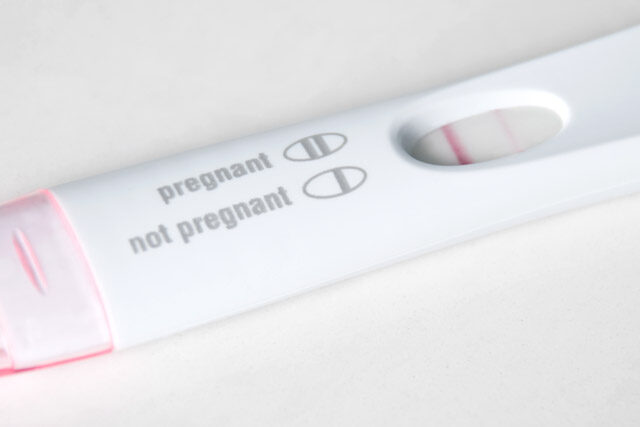Based on the information provided by the CDC, 60 to 75 percent of pregnant women suffer from gum disease. While this may seem a minor problem, those experiencing pregnancy gingivitis know how wrong this judgment is. Today we’ll explain why bleeding and swollen gums are typical of expecting mothers and how those can be prevented and treated.
What Can Cause Gum Disease? Symptoms
The processes happening in the female body during pregnancy affect every organ and system, including teeth and gums. In pregnant women, the levels of estrogen and progesterone are significantly higher than in non-pregnant individuals, causing increased blood flow to the gums. As a result, they may become red, swollen, and much more sensitive compared to the pre-pregnancy period. Besides, the growing levels of hormones affect your body’s ability to withstand bacteria. This leads to the increased formation of plaques and cavities.
The typical symptoms of gum disease in pregnancy include:
- dental bleeding when you brush your teeth;
- gum tenderness;
- swelling;
- redness;
- bad breath;
- the shiny surface of the gums.
All these are the signs of inflammation of the gums. While the first manifestations may appear at the beginning of pregnancy, they usually get worse towards the second trimester and continue until the delivery. Therefore, you should visit your dentist to resolve the problem or at least soothe the symptoms that bother you.
Other Gum Problems when Pregnant
Aside from inflamed gums, pregnancy can bring along another dental issue, which is called pregnancy tumors. Despite their name, they possess no danger to your health because they are benign. They look like small lumps on your gums and can bleed sometimes.
If they are bothering you a lot, your dentist can offer surgical removal. But if you don’t suffer from their presence a lot, you can just wait until your baby is born. The pregnancy tumors will resolve on their own in such a case.
The Negative Effect of Pregnancy Gingivitis on the Fetus. Are There Any?
Mild to moderate inflammation of the gums during pregnancy has no proven negative impact on the developing baby. However, this may affect the physical and mental condition of an expectant mother, which is also worth taking into account.
The major threat of pregnancy gingivitis is that it can grow into periodontitis if left without medical attention. Unlike gingivitis, periodontitis is much more difficult to deal with and can lead to infected gums with eventual tooth loss. Besides, this oral health condition may have a negative impact on the baby in your womb. Among the most common consequences, there are preterm delivery and low birth weight. So if you don’t want your problem to grow worse, make sure you check with a dentist regularly.
Prevention of Swollen Gums in Pregnancy
Good oral hygiene is the number one rule for all pregnant women. To ensure you do things properly, it’s worth visiting a dentist and asking them for detailed instructions on proper mouth cavity care. Here are some pieces of advice that can help you prevent gum disease while expecting:
- Brushing your teeth at least twice daily is essential for preventing the formation of plaques. It’s best to use fluoride toothpaste, though you’d better consult your doctor for the best option in your particular case.
- You should brush your teeth correctly. Use the techniques that are most effective for removing the plaques.
- Flossing is another part of your oral hygiene routine. You should remove the tiny bits of food that stayed in between your teeth to prevent plaques and the formation of cavities.
- Choose soft brushes with small heads. They are gentle on your gums and allow brushing your teeth even in the most difficult-to-reach places.
- Minimize sweets and sugary drinks in your diet.
- Do not use mouthwashes that contain alcohol.
It’s also a good idea to have professional dental cleaning once in a couple of months. Women suffering from morning sickness tend to be at a higher risk for dental disease due to the acid that comes out of the stomach with the vomit. High acidity in the mouth harms the teeth and creates favorable conditions for the development of pregnancy gingivitis.
You can reduce the negative influence by rinsing your mouth with a cup of warm water after each episode of morning sickness. Brushing your teeth right after vomiting is a bad idea because the tooth enamel softens under the influence of stomach acid. The soonest you can do it safely is an hour later.
How to Manage Gingivitis during Pregnancy?
If nothing of your attempts to prevent the development of gum disease works, you should contact your doctor for medical advice. By no means should you ignore the problem. The sooner you start dealing with it, the better are your chances to avoid its complications. There are several options your doctor can suggest to keep the disease under control:
- Oral antibiotics. These can be prescribed in bad cases of gingivitis that are exacerbated by bacterial infection of the gums.
- The use of special mouthwashes can also be recommended by your dentist. They will work for soothing the inflammation and relieving the bothersome symptoms.
- Surgery is the most radical option that can be suggested in severe cases of pregnancy gingivitis that don’t respond to other treatments.
With pregnancy gingivitis, you cannot just wait for the baby’s delivery like it is with pregnancy tumors. The problem won’t disappear on its own, so make sure you get timely treatment.
Summing up
Pregnancy is a challenging time for the entire female organism, including your mouth cavity. Swollen, painful, and bleeding gums can significantly reduce your quality of life and bring the sufferings you can prevent with good oral hygiene. Eat healthily, make brushing and flossing your daily routine, and visit a dentist once in while. Such simple things to do can help you avoid discomfort and possible negative consequences for the fetus. Take care of your health to enjoy your pregnancy time to the maximum.




